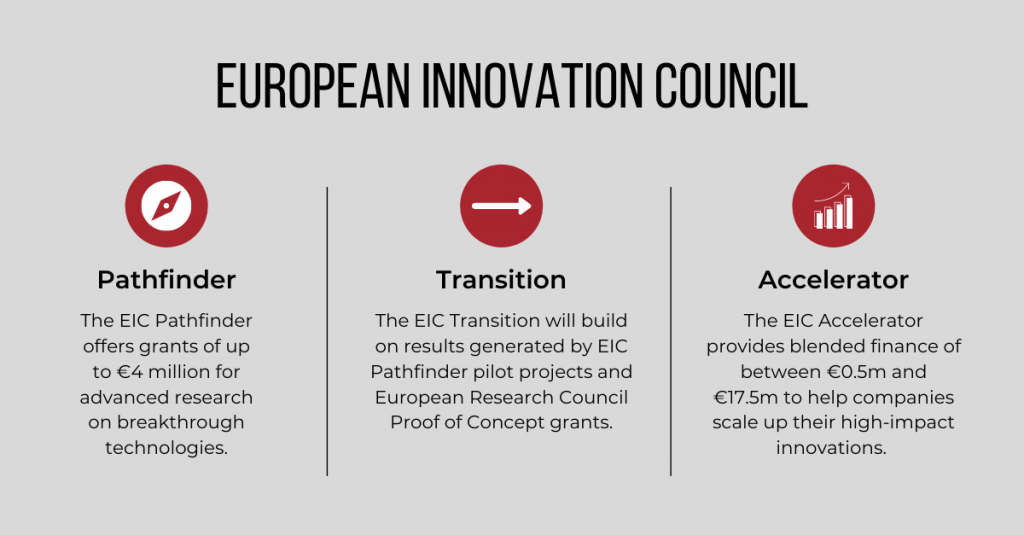£20 million available for clean maritime and smart shipping projects
UK registered organisations can apply for a share of £20 million for clean maritime and smart shipping projects. By supporting the design and development of these technologies, the competition aims to reduce greenhouse gas emissions from the UK’s maritime sector. The funding is from the Department for Transport and delivered by Innovate UK.
Innovate UK is seeking solutions for all sizes and categories of maritime vessels. In addition, all ports and harbours are in scope, including infrastructure for both freight and leisure. There are two strands running at the same time:
Strand 1 – Feasibility Studies
In strand 1, projects must:
- Review the technical and economic feasibility of solutions to reduce greenhouse gas emissions
- Develop a clear plan for a future technology demonstration to be deployed after the feasibility project has been completed
For more information on project scope, including specific themes, click here. Total eligible costs can range from £25,000 to £1,000,000. Your project should start before 1st September 2021 and end by 31st March 2022, lasting up to 7 months in total.
Strand 2 – Industrial Research and Experimental Development
In this strand, projects must design, develop and test novel clean maritime or smart shipping technologies. They must reduce greenhouse gas emissions from both vessels and shore-side infrastructure at ports and harbours. You can find more information about the competition's scope on the Innovate UK website. Your project must have total eligible costs between £100,000 and £4,000,000. Again, your project can start any time from 1st September 2021 and should end by 31st March 2022.
The Clean Maritime competition is open from 22nd March until 2nd June 2021. If you’re thinking of making an application and are looking for bid writing support, please contact us today.
Not the opportunity you’re looking for? Subscribe to our free monthly newsletter in order to receive the latest opportunities direct to your inbox.
£10 million available to support the uptake of battery electric trucks
A new Small Business Research Initiative (SBRI) has launched to provide an innovative solution to enable fleets to switch to battery electric trucks. It is funded by the Department for Transport and delivered by Innovate UK. This is phase 1 of a potential 2-phase competition. Phase 1 projects must include data evaluation, test and demonstration involving a minimum of ten battery electric trucks. If phase 2 goes ahead, projects will involve further field testing and evaluation.
Scope
The competition aims to develop one or more innovative, interactive solutions to support the uptake of battery electric trucks. This should encompass both public and private sector fleet operations.
Your proposal must:
- Identify the costs and considerations around deploying commercially available zero emission trucks
- Demonstrate a credible and practical route to market
- Include a plan to commercialise your result and demonstrate how your solution will provide value
Your solution must:
- Ensure users understand both the strengths and weaknesses of deploying commercially available battery electric zero emission trucks
- Help users to 1) gain an understanding of the economic and practical feasibility of the technology and 2) de-risk, aid and encourage fleet operators to convert to battery electric vehicles
- Provide relevant information to help users make a range of decisions, for example, what to expect in terms of vehicle use and system performance to options for vehicle charging
Eligibility
In total, £10 million is available through this competition with the Department for Transport expecting to fund up to 3 projects. Phase 1 projects can last up to 10 months. Organisations of any size can lead a project and work alone or with subcontractors. You must also be able to provide or obtain access to suitable battery electric trucks to meet the real-time logistics demands of a UK public sector fleet operator. Finally, you should obtain and submit a letter of support from a UK public sector fleet operator
This competition is open between 22nd March and 21st April. If you’d like to discuss an application with one of our advisers, please get in touch. You may also be interested in Innovate UK’s Zero Emission Road Freight competition.
Zero Emission Road Freight: funding available for feasibility studies and industrial research
Innovate UK is investing up to £10 million in innovative projects that focus on zero emission road freight and its supporting infrastructure. This funding is from the Department for Transport as part of the commitments defined in the Government’s Ten Point Plan for a Green Industrial Revolution.
The competition has three strands running at the same time:
- Electric road system demonstration (feasibility studies) – strand 1.
- Hydrogen fuel cell vehicles demonstration (feasibility studies) – strand 2.
- Supply chain technology (feasibility studies and industrial research) – strand 3.
In addition, a related SBRI procurement competition is currently open, which aims to support the uptake of battery electric trucks.
Electric Road Systems
Funding is available for ambitious feasibility studies into an electric road system demonstration. The system should be suitable for 44 tonne zero emission road freight. In this strand, projects must have total eligible costs from £500,000 to £2 million and take place between 1st July 2021 and 31st March 2022.
Hydrogen Fuel Cell Vehicles
UK registered organisations or businesses can apply for funding for feasibility studies into a future zero emission road freight demonstration of hydrogen fuel cell trucks. Eligible costs must be between £500,000 and £2 million while all projects should again take place between 1st July 2021 and 31st March 2022.
Supply Chain Technology
Lastly, funding is available for advanced feasibility studies and industrial research in supply chain technology. All proposals must address the challenges associated with the transition to zero emission road freight. Secondly, they should define a solution to the technical challenges to developing or operating zero emission trucks. Your total eligible costs should be between £100,000 and £250,000.
Each of the three stands will close on 5th May 2021. If you’re short on time and therefore looking for grant writing support, please contact us to arrange a free consultation.
Interested in grant funding but not the right competition for you? Subscribe to our free monthly newsletter in order to receive the latest opportunities direct to your inbox.
The European Innovation Council is officially launched
The European Commission has officially launched the European Innovation Council under Horizon Europe, following a three-year pilot phase under Horizon 2020. The agency has a budget of €10 billion for 2021-2027 to develop and scaleup breakthrough innovations. This makes the EIC the most ambitious step the EU has ever taken in the field of innovation.
The agency will support the EU’s overall strategy in building back better from Covid-19. Areas of focus include digitalisation, as well as the green agenda, climate change and sustainability. In addition, the EIC seeks to overcome biases in innovation, including those against women and poorer regions of the EU. This is reflected in the new EIC Prizes.
The first annual work programme of the EIC is now available, making funding of over €1.5 billion available for 2021. You can find more information on each of the main calls below:
EIC Accelerator
Firstly, the EIC Accelerator has €1bn available to help start-ups and SMEs bring their innovations to market and scale up. Under Horizon Europe, the EIC Accelerator features a new, simplified application system. Start-ups and SMEs can submit a short application at any time.
It provides a unique combination of blended finance, with both equity and grant funding available*. Half of the available funding will support the Green Deal, digital technologies, and health innovation.
*Please note that UK entities are only eligible for the grant component.
EIC Pathfinder
Secondly, the EIC Pathfinder will fund advanced research on breakthrough technologies. Grants are available for consortia of at least 3 partners, each of which should be established in a different Member State (or Associated Country).
The programme has a budget of €300 million, with individual research teams eligible to apply for up to €4 million in grant funding. The majority of the programme’s budget will be allocated through open calls. However, €132 million will tackle five Pathfinder challenges: self-aware artificial intelligence, tools to measure brain activity, cell and gene therapy, green hydrogen, and engineered living materials.
EIC Transition
Thirdly, the EIC Transition aims to bridge the gap between research and innovation by increasing your project’s market and technology readiness. The first call will focus on promising results generated by EIC Pathfinder pilot projects and European Research Council Proof of Concept projects.
All projects funded by the European Innovation Council will also have access to Business Acceleration Services. This includes access to coaches, mentors and expertise, partnership opportunities with corporates and investors, and a range of services and events.
European Innovation Council Prizes
- EU Prize for Women Innovators
- European Capital of Innovation Awards (iCapital)
- European Social Innovation Competition
- The European Innovation Procurement Awards
The EU Prize for Women Innovators and the European Capital of Innovation Awards are now open for applications. The other EIC Prizes will open later this year.
How RedKnight can help
RedKnight aims to make innovation funding as simple as possible for tech-based startups and SMEs. Since our launch in 2015, we have secured over £9.9 million of grant funding! If you’d like to discuss a project with one of our advisers, please contact us to arrange a free consultation.
SBRI open call for innovation in cancer care
In collaboration with NHS England and NHS Improvement, the SBRI Healthcare Cancer Programme has announced a £15 million funding competition for innovation in cancer care. The funding is provided by the NHS Cancer Programme.
The competition aims to implement innovative solutions into the following front-line clinical cancer care settings: i) early detection and diagnosis of cancer and ii) diagnostic efficiency of cancer services. Funding is available for a number of innovation types. They include medical devices, digital health and equipment, behaviour intervention, and new models of care.
The competition brief asks applicants to consider the following questions:
- To what extent will the proposed solution impact cancer service? How will the system need to be changed (including people, processes and culture), in order to deliver system-wide benefits?
- How will applicants ensure that the innovation will be acceptable to patients (and their families and wider support network) and to clinician groups/health care professionals? In what way have these groups been involved in the design and development of the innovation?
- How will applicants ensure that the innovation is affordable to the NHS and wider system such as Integrated Care Systems (ICSs) both immediately and throughout the sustained life of the product? What evidence, both health economics and delivery of impact will the NHS and wider system require before the technology can be fully adopted?
- How will applicants ensure that the innovation takes into account equity of access and addresses unwarranted variation (e.g. takes account of underserved ethnic or economic groups/digital poverty) and helps the NHS towards its target to reach net zero carbon?
- What is the likely impact of this innovation in comparison to the current patient pathway? What is the potential impact on stage distribution and survival based on current data?
- How could the implementation of this innovation develop in the long term? You should take into account any relevant commitments in the NHS LTP.
- You should also consider improving staff working experience/practice and effects on patient perspective.
Eligibility
This call is for products at a late stage of development. They must have achieved regulatory approvals and/or be in use in at least one trust. Any size organisation from the private, public and third sector can apply, providing that they are based in Europe. However, clinical sites can only be based in England. In the first instance, projects should last for up to 18 months and cost no more than £5 million.
The SBRI call for innovation in cancer care opens today, 17th March, and will close on 21st April. You can find more information on the SBRI Healthcare website.
RedKnight has significant experience in supporting applications in the health sector; you can read some of our most recent case studies here. If you’d like to discuss your application with one of our advisers, please contact us today.
£92 million funding boost for green technologies
 The UK Government has announced a £92 million funding boost for green technologies as part of the £1 billion Net Zero Innovation Portfolio. In the next year, they will launch three innovation challenges across key areas of the green energy sector. These include energy storage technology, floating offshore wind, and biomass production.
The UK Government has announced a £92 million funding boost for green technologies as part of the £1 billion Net Zero Innovation Portfolio. In the next year, they will launch three innovation challenges across key areas of the green energy sector. These include energy storage technology, floating offshore wind, and biomass production.
The development of these technologies will reduce costs of deployment across the energy sector. In addition, the green technologies will create highly skilled jobs across the UK and help grow the economy in the aftermath of Covid-19.
Following the announcement, Energy Minister Anne-Marie Trevelyan said:
“This funding will allow us to develop new ways of unlocking the potential for green energy as we continue making big strides towards our goal of eradicating our contribution to climate change by 2050.”
Energy storage innovation
Of the £92 million government investment, £68 million is allocated for the development of energy storage technologies to support a future renewable energy system. This competition will formally open to bids in the spring. However, you can express your interest now on the Government website.
Floating offshore wind
Secondly, the Government will invest £20 million in the advancement of floating offshore wind technology. Innovative projects in this area could advance vital components such as dynamic high voltage cable systems, moorings for challenging seabed conditions and foundations. You can lodge an expression of interest in the offshore wind competition now.
Sustainably sourced biomass
Thirdly, £4 million is available for projects that increase the production of sustainably sourced biomass in the UK. New innovations will help scale up sustainably sourced biomass feedstocks and the production of energy crops. As well as this, they will help to achieve improvements in yields, cost reductions and profitability.
The biomass feedstocks innovation competition is now open to applications. All applicants must register their interest by 31st March and submit their full application by 7th May. If you’re looking for bid writing support, please contact us to arrange a free consultation.
Funding available to solve problems associated with zero emission vehicles
 The UK Government has £17 million available to invest in innovative zero emission vehicles projects. The competition aims to address challenges associated with their uptake in the UK.
The UK Government has £17 million available to invest in innovative zero emission vehicles projects. The competition aims to address challenges associated with their uptake in the UK.
Firstly, funding is available for feasibility studies and collaborative research and development projects. Projects must provide on-vehicle innovative solutions that support the transition to zero emission vehicles (ZEVs) in line with the Government’s transport decarbonisation aims. Solutions should address one or more of the following challenges:
- Improve ZEV capability
- Increase adoption of small commercial ZEVs
- Support transition to zero emission for special use vehicles
- Improve ZEV user experience
- Improve sustainability of ZEVs
Applicants can address these challenges in one of two ways: 1) using new, highly innovative solutions or 2) by advancing an existing innovation or R&D project.
Transitioning towards Zero Emission Vehicles: Feasibility Studies
Up to £1 million is available for feasibility studies. Your project should have total eligible costs between £300,000 and £600,000. It must start by 1st August 2021 and end by 31st March 2022, lasting no longer than 8 months.
At the end of the feasibility study, your project must be ready to continue in future R&D competitions. In addition, you should be able to raise private sector investment to take the project outcome to market.
Transitioning towards Zero Emission Vehicles: Collaborative Research and Development
Up to £6 million is available for collaborative research and development projects. Again, your project must have total eligible costs between £300,000 and £600,000. It should start by 1st August 2021 and end by 31st March 2022, lasting no longer than 8 months.
Infrastructure solutions for zero emission vehicles
Secondly, up to £10 million is available for innovative infrastructure solutions that support the UK's transition to zero emission vehicles. Innovate UK will fund feasibility studies and research and development projects that address one or more of the following infrastructure challenges:
- Improve public residential charging in urban areas
- Improve rural charging
- Advance fleet charging solutions
- Enhance the ZEV user charging experience
Your project must have total eligible costs between £300,000 and £800,00 and the lead organisation must be a UK registered business. In addition, you have to work in collaboration; this may be with another UK-registered business or with an academic institution, charity, not-for-profit, research organisation or research and technology organisation (RTO).
The competition is open from Monday 15th March until Wednesday 21st April. However, there's no need to let the short turnaround stop you from applying! Our expert advisers are on hand to help; contact us today to arrange a free, no-obligation consultation.
Eureka Clusters AI Call 2021: €30 million available
 The Eureka Clusters AI Call 2021 has €30 million available for innovative projects in artificial intelligence (AI). The competition aims to boost the productivity and competitiveness of European industries through the adoption and use of AI systems and services.
The Eureka Clusters AI Call 2021 has €30 million available for innovative projects in artificial intelligence (AI). The competition aims to boost the productivity and competitiveness of European industries through the adoption and use of AI systems and services.
This competition previously opened in 2020. Due to the interest that was shown, as well as the national priorities of participating countries, Eureka has decided to launch the call again. It hopes that by paving the way for transnational collaborative projects, the competition will stimulate activity in AI. This will support economic growth and benefit society as a whole.
Participating Countries
The following countries have allocated funds to support ground-breaking Artificial Intelligence (AI) innovations: Austria, Belgium, Denmark, Finland, Germany, Hungary, Luxembourg, Netherlands, Singapore, South Africa, South Korea, Spain, Sweden, Turkey. Please note that the UK is not participating in this call.
Eligibility
- The call is open to large enterprises, SMEs, Research & Technology Organisations (RTOs), and academia. Eureka has specifically encouraged SMEs to participate.
- The consortium should include at least two companies from different Eureka participating countries.
- The product, process or service must be innovative and there must be a technological risk involved.
- The project should generate an obvious advantage and added value resulting from the technological cooperation between the participants.
- The proposal should highlight any economic and societal benefits that the project will have.
- Eureka anticipates “mid-size” projects with eligible costs in the range of €3-€15 million, but they will assess project proposals that fall outside of this range.
Why Participate?
Eureka expects this call to have a success rate of 30%! This is far above the average success rates of other innovation funding competitions, including those run by Innovate UK and the EIC. You can read more about average success rates here. You will also benefit from exposure to a large network of organisations from countries in Europe and beyond. In addition, you will have access to free coaching throughout the development and execution of your project.
The Eureka Clusters AI call is open from 1st March until 28th June. You can find more information on the competition page and apply via the submission portal. If you’re looking for support for your application, please contact us today; we’d love to hear your ideas!
Driving the Electric Revolution: funding available for supply chain innovation projects
 The latest round of Innovate UK’s Driving the Electric Revolution competition is now open for applications, with up to £22 million available for innovation projects that support the government’s green industrial revolution. The competition aims to facilitate supply chain and manufacturing capability growth in power electronics, machines and drives (PEMD).
The latest round of Innovate UK’s Driving the Electric Revolution competition is now open for applications, with up to £22 million available for innovation projects that support the government’s green industrial revolution. The competition aims to facilitate supply chain and manufacturing capability growth in power electronics, machines and drives (PEMD).
Background
Part of the Industrial Strategy Challenge Fund, Driving the Electric Revolution is an investment of £80 million in electrification technologies. The challenge, which launched in 2019, helps businesses to seize the opportunities that the UK’s transition to net-zero presents.
Scope
The competition aims to facilitate UK niche and volume supply chain and manufacturing growth in PEMD. Therefore, funding is available for business-led and supply chain-focused innovation projects. All projects must enable future improvements in at least one of the following areas: productivity, capacity, quality, efficiency. Ideally, projects should also have the potential for cross-sector impact.
You can find specific themes on the Innovate UK competition page. Broadly, they encompass the following areas:
- Manufacturing process development
- Design for manufacture
- Innovative end-of-line testing and product validation processes
- Circular economy
Eligibility
Firstly, projects must have total costs between £500,000 and £5 million. To lead a project, your organisation must be a UK registered business of any size and work in collaboration. You must conduct all project work and intend to exploit your results from or within the UK. In addition, the project team must include at least 3 layers of an existing or new supply chain, representing both the supply and demand side.
Applications are due by 30th June 2021. If you would like to discuss an application with one of our advisers, please contact us today.
Interested in grant funding but this isn't the right competition for you? Subscribe to our free monthly newsletter in order to receive the latest opportunities direct to your inbox.
The EIC Accelerator in Horizon Europe
A comprehensive overview of the European Commission’s flagship programme for start-up and SME innovation funding
 Should you apply?
Should you apply?
- Do you have a high-impact innovative product, service or business model that could create new markets or revolutionise existing ones in Europe and throughout the world?
- Are you a start-up or small and medium-sized enterprise (SME) with the ambition and commitment to scale up?
- Does your project i) require substantial funding and ii) involve risks too high for private investment alone?
If you answered yes to all the above questions, the EIC Accelerator may be for you; keep reading to find out more.
What is the EIC Accelerator?
The EIC Accelerator is a core part of the European Innovation Council work programme. It is the European Commission’s flagship programme for supporting Europe's most cutting-edge, business-led innovation. Specifically, the EIC Accelerator:
- Supports companies (principally start-ups and SMEs) to scale up high impact innovations with the potential to create new markets or disrupt existing ones. It provides a unique combination of funding from €0.5m to €17.5m, as well as Business Acceleration services.
- Focuses on innovations that build on scientific discovery or technological breakthroughs (“deep tech”). These innovations will need significant funding over a long timeframe before returns can be generated (“patient capital”). As a result, they often struggle to attract financing. The EIC Accelerator provides a viable solution; it enables innovators to attract the full investment amounts they need to scale up in a shorter timeframe.
- Is open to innovations in any field of technology or application. However, it will not support innovations designed primarily for military applications or those that harm the environment or social welfare.
- Supports the later stages of technology development as well as scale up. The technology component of your innovation must therefore have been tested and validated in a laboratory or other relevant environment. In other words, it must be at Technology Readiness Level (TRL) 5 or higher.
- The EIC Accelerator provides blended finance, comprising both 'investment' and 'grant' components.
What support will you receive if your proposal is funded?
An “investment” component in the form of equity or guarantee
Ranging in size from €0.5m - €15m, the investment component is primarily for financing market deployment and scale up. However, it may occasionally be used for other purposes (including co-financing or fully-financing innovation activities). The specific terms of investment are considered on a case-by-case basis and negotiated during the EIC Fund's due diligence process. In the case of equity, investments should not exceed 25% of the voting shares of the company and will be made with a long average perspective on return on the investment (7-10 years) with a maximum of 15 years (‘patient capital’).
A “grant” component to reimburse eligible costs incurred for innovation activities
Typically, the grant component should not exceed €2.5m and all innovation activities should end within 24 months. The EIC Fund will reimburse eligible costs up to a maximum of 70%. Eligible innovation activities for the grant component include demonstration in a relevant environment, prototyping and system-level demonstration, R&D and testing required to meet regulatory and standardisation requirements, intellectual property management, and marketing approval (e.g., TRL 6 to 8).
Costs incurred for the commercial introduction of the product or service and full scale up operations (e.g., TRL 9 or above) will not be reimbursed by the grant but can be financed by the equity investment. In addition, applicants do not have to request a grant component, while small mid-caps are not eligible to receive grants.
By derogation, you may request a “grant component only” (i.e., maximum €2.5m to cover TRL 5/6 to 8 and without requesting an investment component for TRL 9) under the following conditions:
- You can provide evidence that you have sufficient financial means (e.g., revenue flow, existing investors, or shareholders) to finance the deployment and scaling up of your innovation. In such a case, you will have to demonstrate in your proposal that you possess the necessary resources and financial means to provide for the necessary TRL 9 expenditures.
- Your innovation is based on a scientific discovery or novel technology and needs significant validation and demonstration in a relevant environment to accurately assess its commercial potential. Such innovations may be based on research results from the EIC Pathfinder and Transition or the European Research Council.
- Your company has not previously received grant-only support under the EIC Accelerator.
- As part of the UK-EU Trade & Cooperation Agreement, UK entities are only eligible to apply for the grant element of the EIC Accelerator.
How do you apply and how long does it take?
The application process consists of three steps:
- Short application - you can submit a short application at any time.
- Full application - if your short application is successful, you will receive an invite to prepare a full application. At this stage, you will have access to support through a dedicated platform and independent experts and coaches. A remote evaluation of applications will then take place.
- Face-to-face interview - finally, successful applicants will receive an invite to attend a face-to-face interview.
What does the short application consist of?
You can submit a short application at any time via the European Funding & Tender Opportunities Portal. We are currently in a transitional phase from Horizon 2020 to Horizon Europe, but we expect the European Commission to begin accepting applications from the spring. The short application consists of:
- A 5-page form where you must respond to set questions on your innovation, your potential market, and your team.
- A pitch deck of up to 10 slides following a set format.
- A video pitch of up to 3 minutes where the core members of your team (up to three people) should explain the motivation for your application.
Within 4 weeks, you will receive the result of your short application and feedback from the independent evaluators. This will inform you whether your application met the necessary criteria to proceed to a full application.
If your short application is unsuccessful, you have the option to resubmit one further time; where this occurs, you should make significant improvements to your application in line with the feedback. If your application does not meet the criteria a second time, you will not be able to apply again for 24 months.
What does the full application consist of?
If successful at the short application stage, you will receive an invite to prepare a full application. You can submit a full application to any of the cut-off dates but it must be within 12 months of receiving a response to your short application. The cut-off dates for 2021 are 16th June and 6th October.
At this stage, independent experts will assess your application against the competition criteria. You will hear whether your application meets the criteria within 5-6 weeks. If successful, you will receive an invite to attend a face-to-face interview. If your application does not meet the criteria, you can submit a revised full application to one of the 2 following cut-offs. You may also receive a Seal of Excellence if your application meets the excellence and impact criteria.
What does the face-to-face interview consist of?
Face-to-face interviews take place approximately 8-9 weeks after the cut-off date and are conducted by a panel of jury members. While EIC Programme Managers and representatives from the EIC Fund may also participate as observers, they will not have any voting rights. The EIC will update you on the interview's outcome within 2-3 weeks.
What happens next?
If you are successful at the interview stage, you will negotiate terms and then sign an initial agreement for the grant component. This will include a first pre-financing payment. At the same time, your company will be subject to a due diligence process by the EIC Fund to proceed with the negotiation of the investment component (i.e., terms and milestones). During this stage, the EIC Fund will also look for other investors. This process should take between 2 and 6 months. Before it ends, the EIC Fund will reach an investment agreement and relevant corresponding changes will be incorporated in the agreement on the grant component.
If you have any further questions or would like to discuss a potential application, please get in touch. Not the right match for your innovation? You can find alternative funding opportunities on our website and in our free monthly newsletter.

